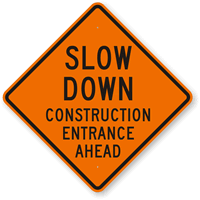WUI? New study blames pedestrian fatalities on booze
A recent study shows that over a third of pedestrians killed in motor vehicle accidents are impaired by alcohol, according to a recent article from the Cleveland Plain Dealer.
A report published this month by the National Highway Traffic Safety Administration shows that total traffic fatalities decreased to their lowest levels since 1949, while pedestrian fatalities increased by 3 percent in 2011. 43 percent of pedestrian fatalities in 2011 involved either a driver or a pedestrian that was above a .08 blood alcohol content, the legal driving limit.

Drivers aren’t the only drunks to watch out for on America’s streets. From Digitalartberlin.
So what’s to blame for these shockingly high levels of alcohol-related pedestrian fatalities? Studies of alcohol’s physiological effects show a number of possible causes. A 2010 study corroborates the conventional thought that alcohol consumption is positively correlated with reaction time. In other words, the more you drink, the longer it takes you to react to external stimuli. But alcohol use doesn’t just increase reaction time – it also impairs a person’s judgment. The synergy of these two effects can be lethal. One misjudgment of an approaching vehicle’s distance is all it takes for a pedestrian to become another traffic fatality.
For many, walking home from bars, clubs, or parties is rightfully seen as the responsible alternative to getting behind the wheel of a car. Jonathan Adkins, a spokesman for the Governors Highway Safety Association, notes that the success of anti-drunk driving campaigns has led more people to take to the sidewalks than the streets. Pedestrians who have been drinking, however, would generally be safer in a cab or on public transportation, since these modes of transportation involve fewer judgment calls and dangerous crossing situations.
Alcohol is not the only factor in play, though; distracted driving and walking are also likely to blame for a high number of pedestrian fatalities. Anthony Foxx, U.S. Secretary of Transportation, reports that distracted walking may be to blame for the increase in pedestrian fatalities. Foxx, who took office on July 1, has already launched a campaign to combat the rising death toll for walkers.
With the success (or, at least, ubiquity) of anti-texting-and-driving and anti-drunk driving efforts, the new Everyone is a Pedestrian campaign may prove to be a success. The new site offers safe walking tips and a number of resources for interested parties to learn about the risks and responsibilities associated with being a pedestrian.

The USDOT claims that distracted walking is to blame for a healthy share of pedestrian fatalities. From Oldmaison.
College campuses would also do well to keep their students educated about the risks, due to the high rates of binge drinking in college-aged individuals. Schools usually provide at least some form of alcohol education, and in that curriculum, more schools should make an effort to at least promote awareness of safe pedestrian activity, or encourage students to call a campus shuttle or escort instead of making a dangerous walk home.
And it’s not just pedestrians who need to be more careful. Municipalities would be wise to invest in ways to keep drivers vigilant and remind them to stay alert for pedestrians. These efforts could be executed through ad campaigns, increased road signage, or simply better lighting sidewalks and crosswalks.
Category: Automotive, Pedestrian safety


















